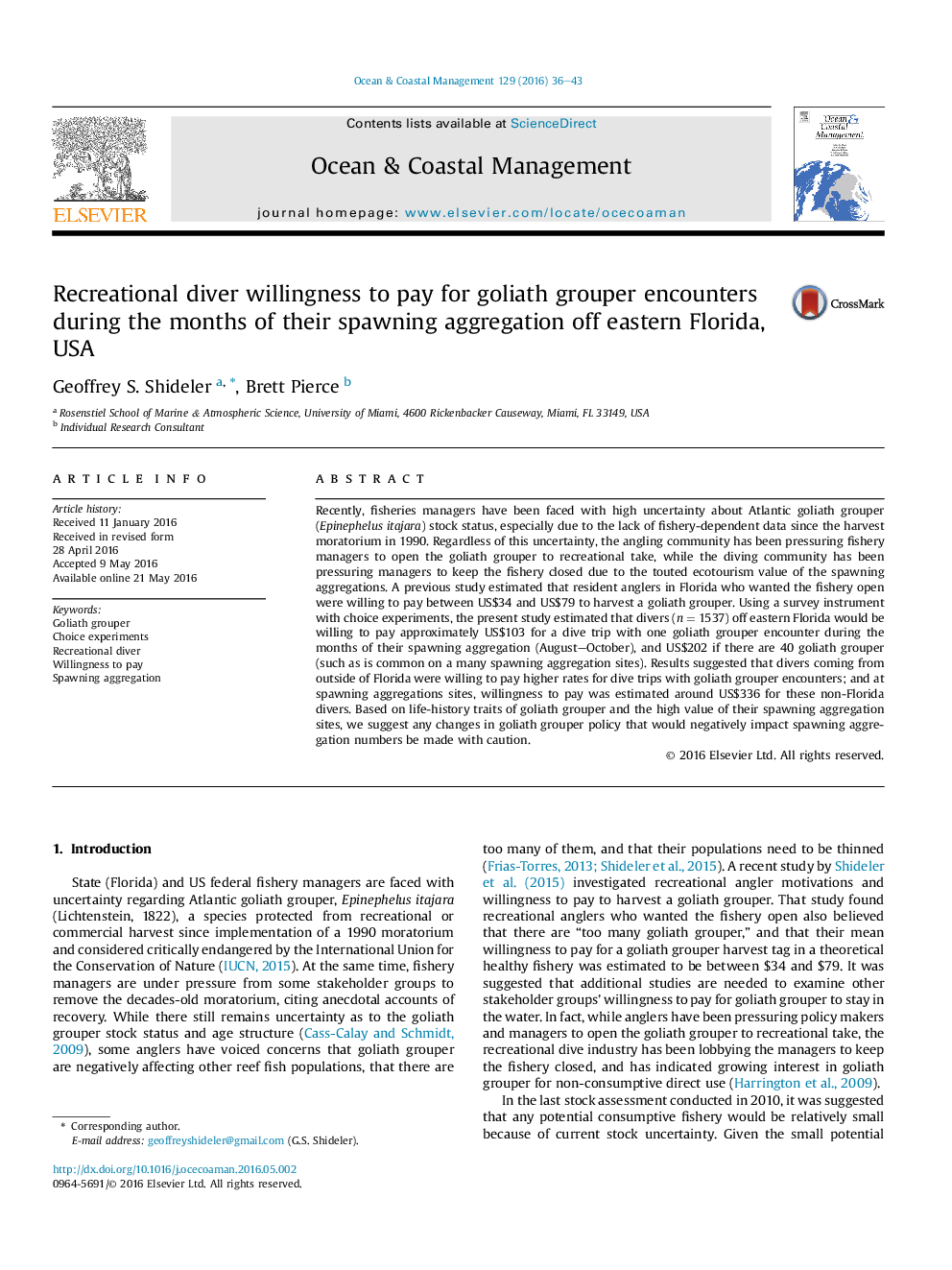| Article ID | Journal | Published Year | Pages | File Type |
|---|---|---|---|---|
| 1723326 | Ocean & Coastal Management | 2016 | 8 Pages |
•Recreational divers are willing to pay around $100 for one goliath grouper sighting.•Diver willingness to pay for goliath grouper spawning aggregation sites is almost $200.•There is high consumer surplus for divers targeting goliath grouper aggregations.•This consumer surplus would diminish with decreases in abundance of goliath grouper.•Goliath grouper economic value should be considered prior to any changes in policy.
Recently, fisheries managers have been faced with high uncertainty about Atlantic goliath grouper (Epinephelus itajara) stock status, especially due to the lack of fishery-dependent data since the harvest moratorium in 1990. Regardless of this uncertainty, the angling community has been pressuring fishery managers to open the goliath grouper to recreational take, while the diving community has been pressuring managers to keep the fishery closed due to the touted ecotourism value of the spawning aggregations. A previous study estimated that resident anglers in Florida who wanted the fishery open were willing to pay between US$34 and US$79 to harvest a goliath grouper. Using a survey instrument with choice experiments, the present study estimated that divers (n = 1537) off eastern Florida would be willing to pay approximately US$103 for a dive trip with one goliath grouper encounter during the months of their spawning aggregation (August–October), and US$202 if there are 40 goliath grouper (such as is common on a many spawning aggregation sites). Results suggested that divers coming from outside of Florida were willing to pay higher rates for dive trips with goliath grouper encounters; and at spawning aggregations sites, willingness to pay was estimated around US$336 for these non-Florida divers. Based on life-history traits of goliath grouper and the high value of their spawning aggregation sites, we suggest any changes in goliath grouper policy that would negatively impact spawning aggregation numbers be made with caution.
